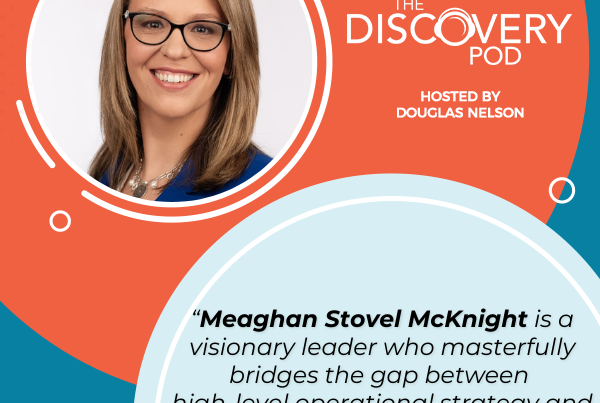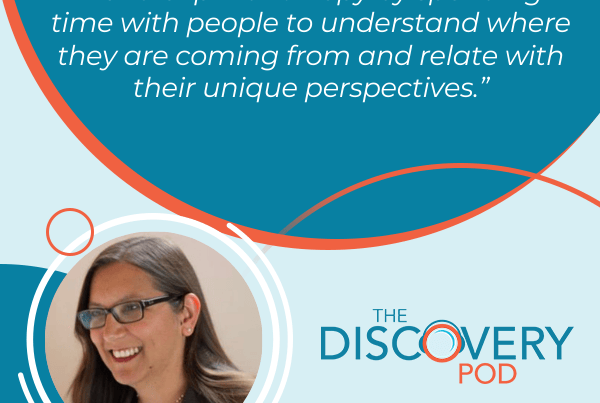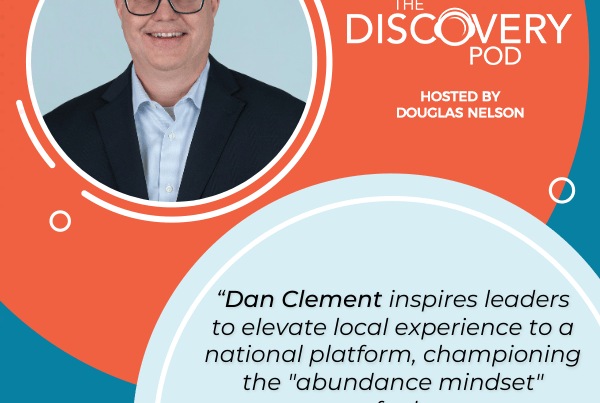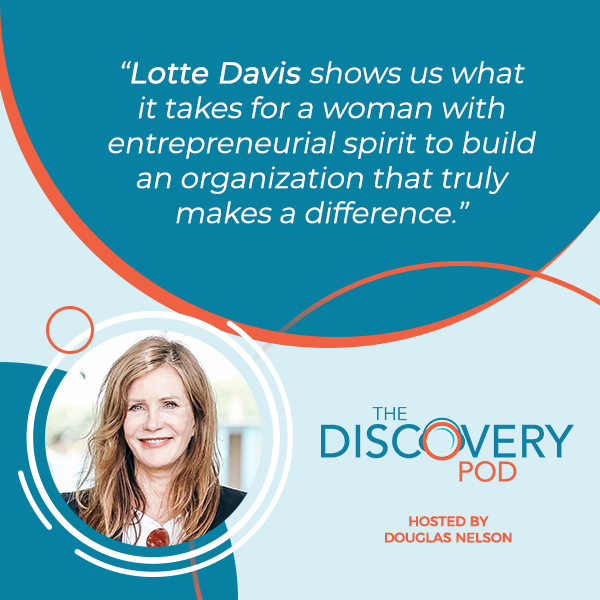
The story of One Girl Can goes deeper than the transformative power it has had on the lives of girls in underserved communities of Kenya. It’s also an entrepreneurial story, a tale of how one woman used her business acumen and organizational gifts to build an organization that truly makes a difference. Lotte Davis, Founder, One Girl Can, joins Douglas Nelson, host, to share the story of how she made her vision come true through perseverance. She also shares real stories of the girls that One Girl Can serves and the work that is left to do. Tune in for more!
—
Listen to the podcast here
One Girl Can With Lotte Davis, Founder
I’m thrilled to share my guest, Lotte Davis. Lotte is the Cofounder of AG Care and the Founder of One Girl Can. In addition to building her company into a well-known and respected beauty brand, Lotte has worked tirelessly to find a way to impact gender inequality, and One Girl Can’s actions and efforts in Kenya are making a real difference.
In 2008, she began building schools for girls in some of the poorest regions in Kenya. By 2023, this initiative developed into the creation of her own charitable organization, known as One Girl Can. Many of our readers know the work of this organization and know the tremendous difference it makes in the lives of the girls that it serves. Lotte goes deep into the history of the organization and talks about the exciting future for One Girl Can and, in between, gives a lesson in what it takes for a founder with an entrepreneurial spirit to build an organization that is truly making a difference. Please enjoy my conversation with Lotte Davis.
—
It’s Founder’s Day here on the show. Welcome, Lotte.
Thank you.
The Mission
I have been looking forward to this conversation and have been aware of the great work at One Girl Can for many years. For some of our listeners who may not be as familiar or want to be re-familiarized with the great work at One Girl Can, tell us a little bit about the organization and the mission that you serve.
We started in 2008 and had no strategy whatsoever other than this need to try to impact gender inequality in a way that I couldn’t even understand back then how that was going to happen. It has been a journey. We started out working with an NGO in Kenya that was based in Kenya, run by Kenyans and gave us liberal access projects that were outside of the main center.
We did a lot of work in rural Kenya, initially building schools for five years. After five years, I realized a couple of things. One, as an entrepreneur, it was not possible for me to work with a bureaucratic organization characterized by an NGO because it wasn’t fast enough. It wasn’t accountable enough. I also began to realize that I wasn’t going to impact gender inequality in a big way by just simply building schools for girls.
At that point, I realized that if I was going to try to make a difference, I would have to do it by myself. This is when the model began to unfold. Having been an entrepreneur all of my life, I understand the importance of listening to your customers and ensuring that you provide them with a unique service that will help them move their agenda forward.
The girls became my customers. Making sure that they would be able to eventually earn a living, become financially independent, and be able to contribute equally alongside men to their economy and to their society became the goal. From there, the girls really informed how the program developed. What has resulted is a holistic program that is unusual from what most charities do. A lot of charities intersect at a particular point of a need or a project.
They also look for scale so that they can go back to their donors and say, “Look how many people we have impacted.” We did exactly the opposite. We are called One Girl Can because if we couldn’t get that girl through an end-to-end journey where we start supporting her with education in high school, we would never know what happens to her afterward. We never know if we really impacted her life and who she’s impacted. We intersect every point of that journey from her right through high school and right through university, as well as career training, goal setting, confidence building, mentorship, internship placement, and job recruitment.
This entire gamut of components essential to becoming a success is almost like raising a child. At the end of the day, you’ve taken somebody out of the slums or out of a remote rural community, and you’ve given them all the tools to become successful. We work with the students who show the most determination and have the highest marks.
The raw ingredients are already there. All we need to do is provide some training, direction, and also confidence. I think one of the most important things we do, and something that’s almost impossible to raise money for, is we offer mentorship. We stand beside that girl, get to know her, help plot the course for her, and stay with her until she has graduated from university and is gainfully employed.
I think that’s sort of the magic, the whiffle dust that we are able to add to that program. As I said, it’s unusual to invest in one human being for such a long period of time, but the result is that women have a multiplier effect on their society. They’ll tell one person and they’ll tell one person, but we teach them how to train people.
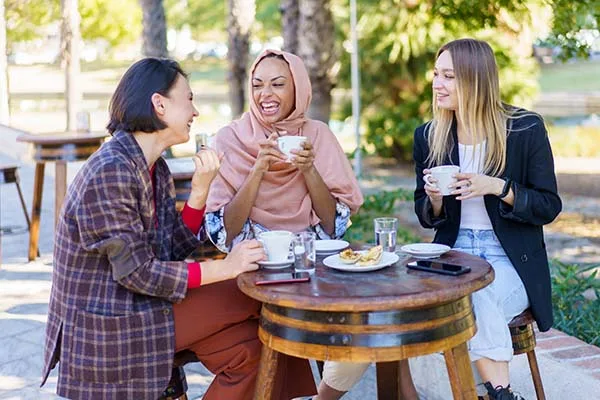
One Girl Can: Women have a multiplier effect on their society.
We teach them how to coach and mentor. We teach them how to pass on all of the learnings that we have taught them, such as where to start and how to move your life forward. This has essentially become the model, and we can’t boast scale other than the fact that we do this for about 12,000 girls a year in a coaching manner. That’s how it’s developed. Sorry, a little bit of a long-winded answer.
Working with 12,000 women is not a lack of scale. There certainly is, and I don’t know what to say that the unique model that you have is probably the result. I would say that the 12,000 girls that you work with on an annual basis are a feature of your model. It’s not a barrier to scale. That depth at going deep and building those long-term relationships with the people you’re working with rather than focusing on a little bit here and there with many.
It probably has some unique advantages. Before we talk more about what you’re doing now, I want to go back to that pivot from building the five schools in rural Kenya that you started doing in 2008. Was there a moment in time when you realized this isn’t going to be the future? Can you take us back to when you realized this isn’t going to be the future, this isn’t going to accomplish the goal that I have for the work I’m doing here?
Yes, I think probably the time when I flew to Africa to visit the new library that the NGO had been busy building for us and there was nothing there. It was a strong indicator that they were keeping me in the dark and didn’t have the capacity to move things forward the way that I did. That was really the moment for me.
As soon as that happened, suddenly it was in my hands to move things forward, I realized we had just started providing scholarships for girls as well, but I thought getting them out of high school wasn’t enough. We need to have leaders. We need to have women in positions where other women can see them and become role models for them. University became an important aspect of what we did. That was the point at which I thought we needed to build a comprehensive program, not just do one thing.
We need to have women in positions where other women can see them and become role models for them. Share on XWhat’s really interesting to me, there are a lot of donors who’ve committed the time, energy, and money to build those five schools or to build five schools and not a library, finding out that that wasn’t happening. A lot of people would walk away and say, “I was trying to do something good here, but this isn’t got to work. I’ve got to spend my time and attend on something else.” What made you keep going?
I’ve been an entrepreneur most of my life. You don’t give up on things. That’s just a small setback. That’s not a game-changer at all. The goal was still there. I wanted to make a difference and I felt I could do that.
One Girl Can Community
One of the features of the model of One Girl Can really is those deep relationships that you talked about. Maybe it’d be helpful for our readers for you to share a little bit of what it is like for these girls in the community and just some examples of some of the young women that you’re working with. What are the challenges they’re facing? What are the realities of their life that they’re living and how One Girl Can interacts with them?
First of all, high school costs $600 or $700 a year for a family that may have multiple children and might only make $1,000 a year. Some of that might be in barter currency. There’s the affordability aspect of even sending your children to school and when they do send them to school, they often go for months at a time until they have a bad crop or run out of money. That child has to come home for 2 or 3 months until they can afford to send them again.
The reality is that polygamy is legal in many parts of Africa, as it is in Kenya. Girls are often married off to older men as a second wife. It’s not unusual for girls to be married at 14, 15, or 16 years of age, and without any education and training, they’re expected to do exhausting manual labor eighteen hours a day. There is no way out for them without an education. They just repeat exactly what their mothers and their grandmothers have done. Particularly if you’re raised in a rural environment, otherwise you live in a slum and will resort to prostitution to try to make a living. It’s very sad. There are no opportunities.
How does One Girl Can identify the young women to work with? How does someone come into your program?
We started with the schools that we built and they became our partner schools. We asked them to look at the grades of students who were coming from primary school and going to secondary, find the brightest ones, and recommend them to us. They’re very much involved in the process.
One Girl Can focuses its programs on the concept of cycle empowerment. What does the cycle of empowerment mean to the organization? Give us an example of a successful completion of that cycle.
Yes, and again, as I said, this has really been informed by the girls themselves and the model grew organically. It started by building schools for girls in some of the most remote areas in Kenya and Uganda, where access to education is very limited. We would find schools that had 1 or 2 classrooms, dormitories that had dirt floors, and girls sleeping in the dirt. No proper sanitation.
We started to build classrooms, science labs, dormitories, libraries, dining halls, and whatever else was needed and then more and more girls started to come. It starts with that fundamentally and then we got into a scholarship program when we learned that education isn’t free in most parts of Kenya or Africa. From there, we started a series of workshops in which I realized these girls had no role models.
They had no idea how to move their lives forward. I knew that even as a successful, affluent woman coming from a very prosperous country, the way that I moved my life forward was through goal setting. I knew that that was the inroad. That’s the one place where I could say, “We may be different, but we’re the same.” I started developing a workshop for each grade that they were in.
It started with Empower Me, where we started to ask girls, “What do people say about you? What do you love doing? What are you good at doing? How old would you like to be when you get married? What kind of a man would you like to marry? Is it the guy down the street in the bar at lunchtime? Describe him, start to envision, close your eyes, and envision the ideal life that you would like to have, and then start writing it down.”
Then each of these workshops was followed by 90 minutes of traditional goal setting. “Where do you want to start? How are you got to get there? What are the obstacles to getting there and how are we got to push through this?” We would do it in the next year in grade eleven, where we took career fields and tried to figure out where they fit in. It’s all checking boxes and it’s unbelievably low-tech and very accurate.
To find out whether they enjoyed working outdoors, did they enjoy working with numbers? Do they enjoy working with people? We broke it into career fields and more goal setting. In grade eleven, the course is called I Will Be, and then we start looking at the careers within each of those fields and break it down further.
In grade twelve, the program is called I Am. That’s when we start looking at where do you need to go to get that education. How many of you qualify for scholarships? If you don’t qualify, how do you get there anywhere anyway? How do you figure out how you’ve got to do something in your life and not go back to your village and get married? The goal setting became the foundation for everything that they did.
Build the schools, get a scholarship to stay in school, do workshops, career workshops, confidence building, goal setting, strategic thinking, get a scholarship to go to university, and then start that process all over again. Every year, we do a leadership conference in Nairobi where we bring in successful businesswomen, both locally and internationally, to talk about how they move their careers forward.
Once they are in school, they are obliged to do a mentorship every year with a girl in their village or somebody that they know and they have to fill in a report on how they mentored them, what was the result of that, how did they help them move their lives forward. For four years, they get that training on mentoring somebody else, and then finally, we help them get into a job through internship training, job placement, recruitment, and entrepreneurial training.
Just in case they don’t get a job right out of university, how are they going to support themselves? We’ve partnered with the Sauter School of Business in Vancouver, who has developed a very comprehensive course specifically for One Girl Can to show them how to start earning money and developing their business acumen if they don’t get into a career right away. The last part of that cycle is they give back. They sign a contract with us and they reinvest 5% of their earnings for four years back into a trust fund. That helps provide scholarships for other girls, and that’s the cycle.
As you’re going through that, I’m thinking of all of the firsts that these students must be experiencing as they’re working with your organization. Just going back to being asked those questions about initial goal setting. Many of these girls, I’m sure, probably haven’t had the opportunity to consider these things either.
Certainly, people may not have asked them, what do you want to do? What does your ideal life look like? What is that experience like for them in the first instance, to consider a world beyond what they understand or beyond what is intended for them at a young age, realizing that the world is that much bigger of a place and that their field of options is much broader than they may have thought?
I’m glad you asked me that question because I think that was one of the most rewarding aspects of this. It’s why you just keep going on and on. When I first stopped working with an NGO and started going to the schools and I was no longer a visiting dignitary, canopies were brought in, all sorts of speeches were made by local dignitaries and I hated that.
As soon as they were all out of the way, I just sat down with the girls and said, “What’s up? Tell me what’s going on with you.” You’re right. Nobody ever asks an African girl what she wants to be when she grows up because it’s a foregone conclusion. I noticed that they were very reticent to share information. They were taught to speak in very quiet voices, to not make eye contact, and to not exhibit a behavior.
When I would ask them, “What do you want to be?” They’d say, “I’d be a doctor.” I’d say, “I’m sorry, I can’t hear you.” They’d say, “I’d like to be a doctor.” I said, “No, you’re not going to be anything until you start really owning that.” I realized that we had a lot of work to do with them. I did start these interactive workshops. I’m very loud and African girls are not loud. I taught them how to be loud.
I had them standing on the furniture, shouting it out, and then saying, “Does anybody believe she’s going to be a doctor now?” They got it, but four years later, after doing these workshops, they now run up and hug me and tell me, “I’ve never thought like this before. Nobody ever told me that I could think like this, that there was a way to move things forward.” It’s very rewarding when you see the light going on and saying, “It doesn’t always have to be this way. I can be the master of my own destiny.”
Overcoming Challenges
That’s really powerful and thank you for sharing that. I think, in general, all of us need to stand on the furniture and yell our goals out a little bit more. I think that’s healthy for everyone right across our sector. Lotte, I’ve had the chance to spend a fair bit of time in Africa and work with a number of organizations, including organizations in East Africa. One of the overwhelming realities is just how complex the issues are that any individual girl, family, or village is facing at any one time. What is the current landscape in Kenya for organizations like One Girl Can and how is that affecting the program you’re able to offer?
I think the biggest challenge that we continue to have is the economy and the lack of jobs. There’s a huge informal workspace for people, but formally, if somebody puts an application into a job, there might be 5,000 people applying for that same job. There are a lot of university-educated people there now. At one point, they converted all the technical schools to universities and have 72 universities.
Now they’re turning that back into technical schools again. It’s finding placement for the girls that is one of the most challenging things to do. We’ve never had any trouble operating. We work with eleven high schools. We let the Ministry of Education know what we’re doing. They’re very welcoming because we make a big difference with the schools.
We also provide regular income for them that arrives on time by providing scholarships for 30 to 40 students in each of these schools. They’ve also seen the grade average grow up year after year because they’re seeing girls actually going to university. We were offering 75 university scholarships a year. Nobody does that. Full-ride scholarships.
Everybody realized that this was attainable and started working harder. My relationship with the Kenyan government is fairly non-existent. They know that we are there and allow us to do the work with the schools and we’re very respectful of how we show up at those schools. I’m not in the formal charitable sector or kind of slide under the radar and we just do the work we do and put conferences on.
I think that’s great. I’ve seen a number of organizations seek that very formal relationship with the government and struggle to be able to retain independence. I think that’s diplomatic enough. It can be quite a challenging environment to operate in. I want to pivot to your career before One Girl Can. You mentioned a couple of times being a career entrepreneur and that entrepreneurial spirit comes through in how you clearly talk about One Girl Can. What are the differences after having worked and developed and built businesses in the private sector and having built One Girl Can in the social profit sector? What are the similarities? What were you able to bring from that entrepreneurial world to the social profit sector?
I didn’t know anything about starting a charity. I have no formal background. I’d never really given formally to a charity very much myself. I think that was an advantage. I’ve always run One Girl Can like a for-profit business because I don’t know any better, but I also understand the importance of solid marketing of KPIs in developing a strong operating model.
I’ve also had a lifetime of not giving up. I don’t get overwhelmed by problems because that is just the general course of business. No matter what you’re doing, there are obstacles every day. We grew very quickly and whenever there was a problem, we’d find new training programs, new partners to help us, new volunteers, and coaches. We just kept inventing programs as the situation required.
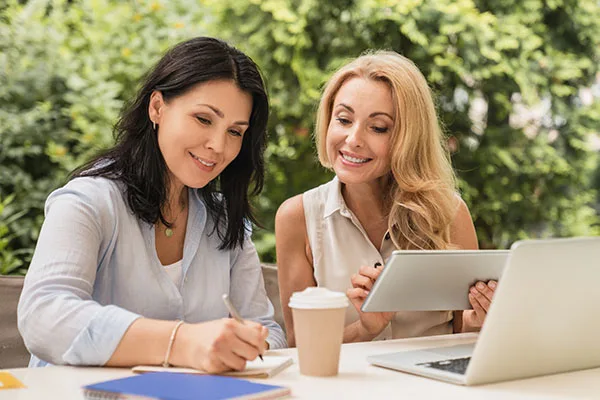
One Girl Can: We grew very quickly and whenever there was a problem, we’d find new training programs, new partners to help us, new volunteers, and coaches. We just kept inventing programs as the situation required.
It does operate differently and so there are some important differences in the rules. What were some of those differences that you encountered and how did you keep going through them?
I’m not a really good rules person. We are a registered NGO in Kenya. We have people to make sure that we comply with all of the Canadian and Kenyan NGO requirements, but other than that, quite honestly, they’re the same issues that you have in business. I didn’t find any of them to be specific to a charity. It’s really a business model at the end of the day.
I find a healthier way to look at it. I find a lot of people get into a charity because their heart is in it and they want to make a difference, but they don’t have any of the business acumen to be able to scale it and to have an impact. I think it’s probably a gift that I was blind to all of that and already had a model. I’ve never really run it like a charity, so I don’t even know how to answer that question.
A lot of people get into a charity because their heart is in it and they want to make a difference, but they don't have any of the business acumen to be able to scale it and to have an impact. Share on XI think that’s a really great answer to the question, Lotte. If you run fast and solve the problems as you go and don’t acknowledge that there may be differences that slow you down, it allows you to get a lot done. I think it’s really impressive. What advice would you have for someone who’s at the beginning stages of founding a charity or a social profit organization?
If it’s something that you’re trying to align with your business, make sure that it also aligns with your customer base. We’re very fortunate that in my for-profit business, probably 95% of our customers are women. I didn’t start this intentionally to have it aligned with the business, but the people in our business demanded to know more about it. Suddenly, it became one of the pillars of our business. It became so important to people, and particularly to women, to know that we were investing our profits back into a social platform that would help other women move their lives forward.
If you’re doing it from a business perspective, because you think it’s important to have some sort of a social profile and to be deemed to be giving back to the community, then I would align that very much with what your product and your customer base is to ensure you get support all along the way. If it’s just because it’s the goodness of your heart, find the right people to run your business to make sure you can move it forward. Look at what skills and talents you have and then hire the rest of them. Make sure you start that from the very beginning so that you can grow.
That’s great advice for any endeavor, charitable or not. Lotte, I started this by celebrating that we had Founder Day on the show. Over the course of our couple of hundred episodes now, we’ve had two dozen or so founders on. One of the questions I have asked every one of the founders is, knowing what you know now and having experienced what you have experienced over the last number of years, would you do it again?
A hundred percent. I’d still be doing it if I wasn’t running out of steam at this particular point. I also feel that the organization needs a fresh perspective and new blood. I have now found an executive director, and I’m coaching her through this process and getting her up to speed. It was really rewarding running my for-profit business. We started with absolutely no money and no experience. It should never have been successful.
It was enjoyable and challenging. I don’t come from any money, not just my husband, and we didn’t have the goal of building a $30 million business. As we started to see it grow, we thought, “This is going to be the best thing in the world.” Becoming financially independent, like, “Is this really happening to us?”
When we got there, it actually wasn’t as satisfying as you would think, but when you have a not-for-profit and you get that kind of reaction, I’m getting emails from girls in Africa all the time saying, “You changed my entire life. I just married a business executive. I have my own business started. I am confident. I know that I’m going to make it in this world and it wouldn’t happen without you.” That is actually worth a lot more than the financial success that we achieved. Yes, 100% I would do it again. I’m sorry that I’m not doing it as much as I used to. I’ve been to Kenya 25 times in 15 years. I need to slow that down a little bit.
Think of all the airline points you’ve got. It must be amazing. Thank you very much for sharing that. A number of founders we talk to say no and in fact, the majority of them say no. It’s great to hear that your passion, connection, and commitment there are still just as strong. As we come to the end of our conversation, I want to ask you one final question, which is, Lotte, what are you looking forward to?
I guess at this point in my life, most of all, I’m looking forward to seeing One Girl Can be able to continue and grow. I can’t keep doing this forever, but we’ve built such an incredible base, and it’s so unique. It has impacted so many girls, and, as I said, has that trickle-down effect. I hope that it will continue to grow with the right people behind it because I think the model is the right way to start empowering women and we just need to do more of it.
The One Girl Can model is the right way to really start empowering women. We need to do more of it. Share on XIt is such a great contribution to the sector, and it is certainly important for young women to have the opportunity to participate in it. Before you go, tell our audience how they can learn more about One Girl Can.
Go to our website, OneGirlCan.com. It’s very comprehensive. It’ll give you all the information that you need. Lots of pictures. Yes, we would really appreciate it if you could donate one cappuccino a week to help maybe change somebody else’s life because what we’re doing does work.
Lotte, thank you so much for all the work that you do and for being here on the show.
Thank you very much. Thanks for the opportunity.

